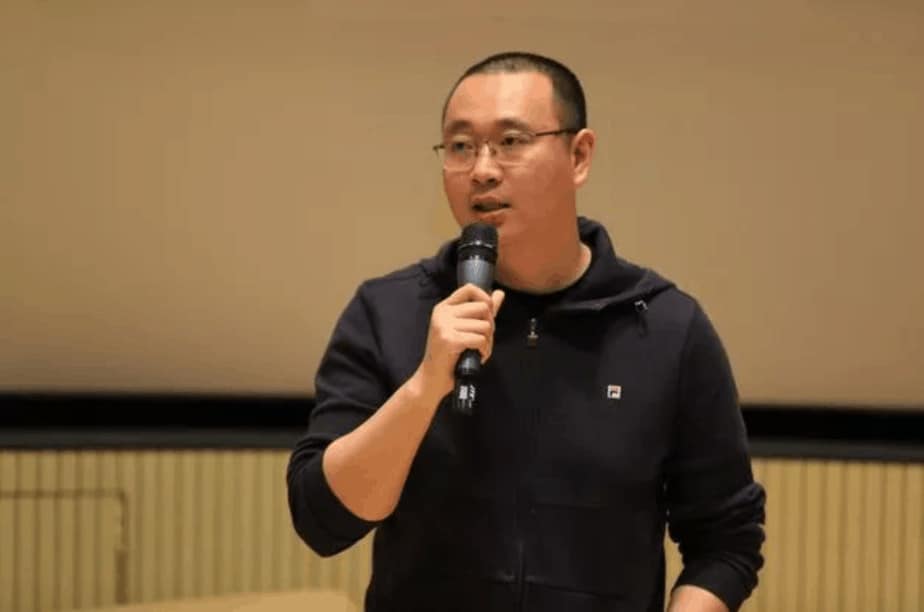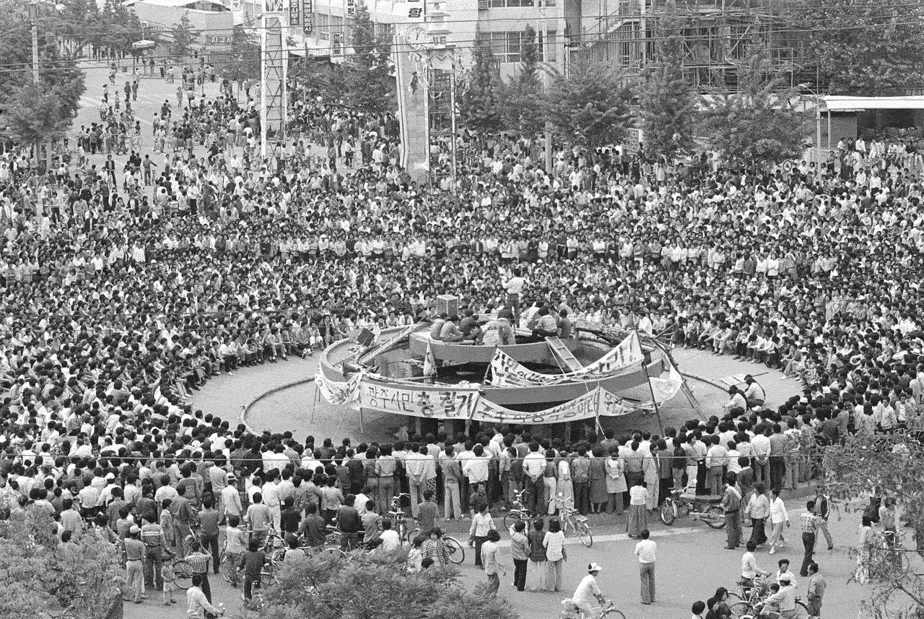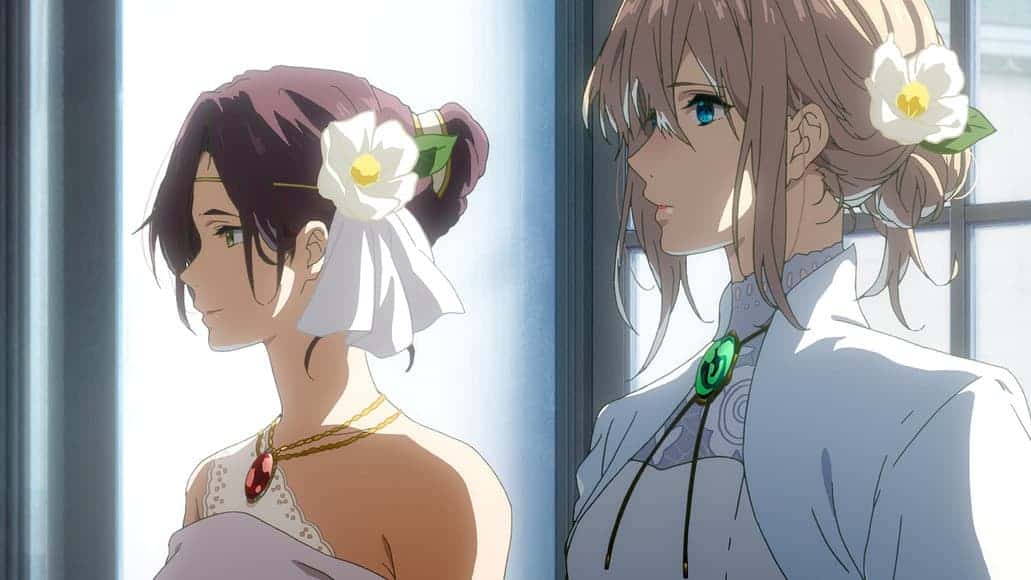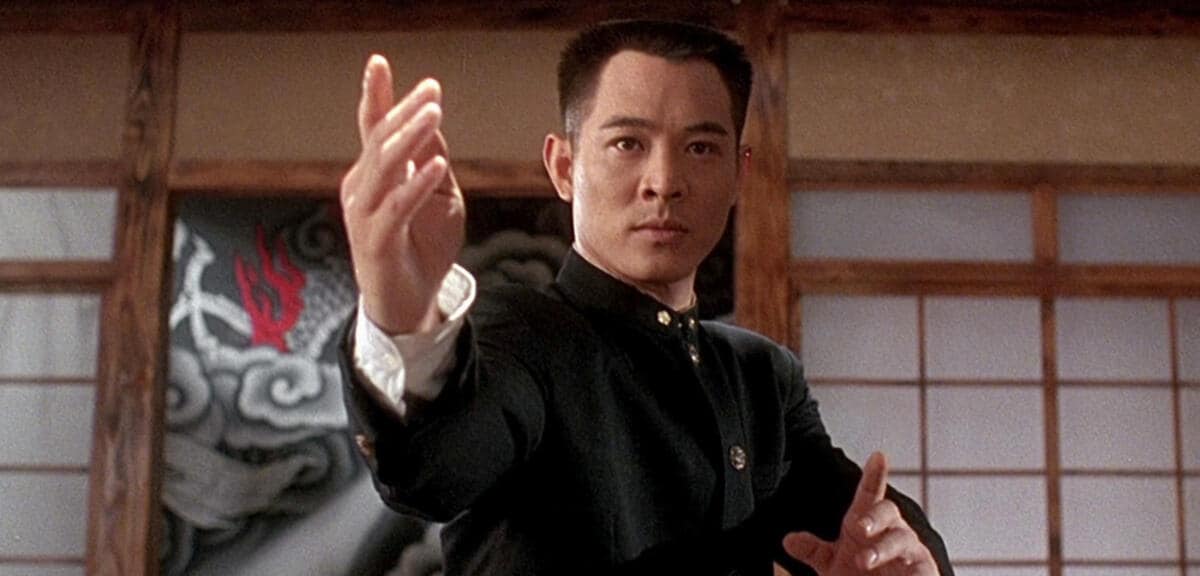Huo Meng was born in Taikang County, Henan Province in 1984. He is a screenwriter, director and independent producer. graduated from the Communication University of China. His short film “Hongguang's Holiday” (2008) won the Best Short Film award at the 15th Beijing University Student Film Festival nd was included in the 3rd Asian Youth Image Exhibition. “My Best Friends” (2015) was selected for the 7th Macau International Film Festival.
We met him at the Ulju Mountain Film Festival 2019 where he presented his film “Crossing The Border” and we talked with him about the importance of not forgetting history, the generational changes in the modern Chinese society, working with non-professional actors and more.
“Crossing The Border” is screening at Ulju Mountain Film Festival2019
I've read that among your inspirations were the memories of you grandfather. Is that true, and if positive, can you elaborate?
Yes, this movie was inspired by a sentence that my grandfather once said to me. In 2005, I was still in college, and I went back to my hometown during the summer vacation. He told me that he had received a phone call from an old friend with who he had lost contact for a long time. So he really wanted to visit that old friend. But we didn't care about this. In 2011, my grandfather died. A year after his death, a thought suddenly popped up on my mind: what kind of journey would have been if he really had gotten on the road? This gave me the opportunity to develop this story. And my grandfather was once labelled as a rightist when he was young; in the movie, Li Fuchang's character presents also many traits of my grandfather.
The main character, Li Fuchang, narrates the old legend, which seems parallel to his life. Why have you chosen this particular story?
Although the story of Wu Zixu escaping from the country happened in China more than 2,000 years ago, I understand his inner desperate feelings. During the shooting, I have been in a difficult situation for a long time, and I couldn't see the hope. Although the times are different, when it comes to life, everyone's inner anxiety is almost the same. Our life is to cope with the dilemma one by one, and then unwittingly walked to the end of life. Many Chinese philosophies are related to the idea of “suffering”, which is very different in the West. Probably because people living in this China have been experiencing a lot of pain and suffering.

In your movie we can see characters representing three generations, spanning from the 7-year-old Ninging to his grandfather. What do you think about the generational changes in the modern Chinese society?
This inter-generational change in China is indeed enormous, and this is firmly related to the tremendous transformation happening in Chinese society. For example, in the past, everyone's life-path was similar. A 20-year-old son may not understand what his 50-year-old father is thinking, but after the arrival of his 50th birthday, he might understand his father's consideration. However, China is now experiencing a tremendous changes, during which various thoughts are crowded and collided. The environment in which each generation lives and the education they receive are very different. This not only creates a huge gap between generations, but also brings many social problems, and it is increasingly difficult for people to trust each other and communicate.
Li Fuchang and the other characters sharing his age often revoke in memories the times of Cultural Revolution. What kind of impact it had on the generation that experienced it? Does its memory still influence society?
It may be because the Chinese have experienced too much suffering, so they foster a very strong ability to recover from the pain. During the Cultural Revolution, they often choose to endure, forgive and “forgotten.” Just because we have to adapt to the new era, those past experiences will definitely exist in the deepest part of their hearts.
Because the official does not like everyone to discuss these memories, we can barely find a simple piece of news about it in the mass media. But for artists, it is very responsible to face what has happened in this country. I also hope that through this film, people will look back at history.
When Li Fuchang finally reaches his ailing friend for whom he crossed so many miles, he spends with him only few minutes, explaining that his close ones are waiting. But I had the impression that the reason is different… That he got scared confronting the closeness of death and his own mortality… What was your intention of making this meeting scene so short?
I just think that such a short meeting is realistic. It is in fact very consistent with the character of Li Fuchang's generation. They are accustomed to hide deep feelings in their hearts, instead of expressing them.
The boy and Li Fuchang often discuss about life and death… What are the generational differences in perceiving those matters?
In the years before I shoot this film, I was very confused about life and often thought about the meaning of life and death. So in the film, what I thought is necessarily expressed by their conversation. This is why it was necessary to set up an old man and a child because these two people are at the very start and end of the life. They are not like middle-aged people who are busy with their livelihoods and are busy with a lot of specific matters. So they are more like two philosophers, and I think it is reasonable to make them have such a dialogue.

Grandpa. after that journey with his grandson. realises the mistakes he made while bringing up his own son, the boy's father. Do you think that life wisdom and a distance to past events is the most important thing that comes with age?
Age is only one aspect. What is more important is what he has experienced and his thoughts on life. Some people may not pay attention to the wisdom of life for the entire of their lives. Like many philosophers, when writing the most important works, they are not very old.
How did you came up with the idea of the characters Li Fuchang and his grandson meet on the way? Are they inspired by any real-life talks and events?
The main thing is to think about what you want to express most. Then create conversations and events that match this expression. Some details come from real life, such as Grandpa fishing with glass bottles, which we did when we were childs.
Why did you decide to show only male characters? Grandfathers, grandsons, sons… The female characters (like Ninging mum) are only mentioned, but not shown…
I didn't make such a setting on purpose. When I finished this script, I realized that there was no female character. So I also checked the whole script to find out if there is place for female characters. Unfortunately, none of the main characters can be replaced with female characters. This may be related to the authority structure of the Chinese countryside. When it comes to important things, it is usually men who are making decisions. They are the center of the authority structure, and women are only auxiliary roles.
How these generational differences refer also to women in Chinese society?
In urban families in China, women have more and more rights to speak, and the income of many urban families will be managed by their wives. But in the country, women are still in a relatively passive position.

How did you chose your actors and have the generational differences applied also to the methods of working with them?
Because I am very familiar with the Chinese countryside and the people living in the country, I decided to find a non-professional actor to play this film very early. This is a kind of realistic film, and professional actors can't play without affected airs. It was actually very smooth communicating with them. Because I understand them and know what kind of methods to use to help them get into the role.
Can you give us some details about the locations the film was shot? How was your cooperation with Wang Zhuo?
The film was mainly shoot in my hometown of Taikang County, Henan Province. The village where grandfather lived in the movie is actually the village where my nanny's family lived. Many scenes on the road are basically taken along the road from Taikang County to Sanmenxia. The scene of the hospital was shot in a hospital in Zhengzhou, because there wasn't an appropriate set in Sanmenxia.
My cooperation with Wang Zhuo was very enjoyable, because we have been friends for many years and we know each other very well. We would design the scenes together and look for the visual style of the film together. Due to the limited budget, there was no lighting equipment; we decided from the beginning to use natural light to shoot.
Are you working on anything new?
I'm currently writing a script, it is a story set in the 1991, mainly about the various things that happened in a village in a year.















